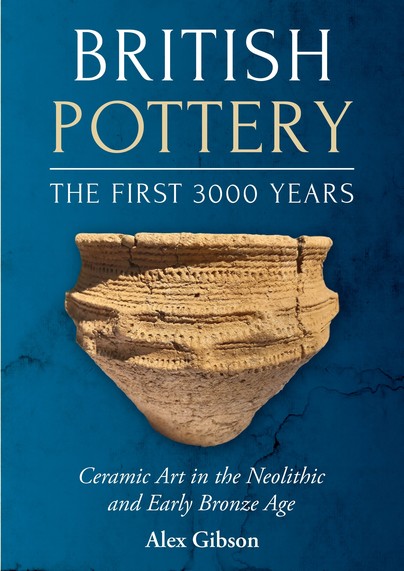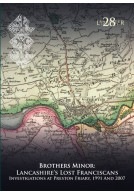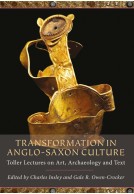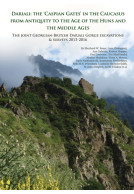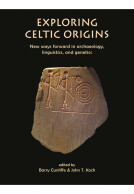Google Books previews are unavailable because you have chosen to turn off third party cookies for enhanced content. Visit our cookies page to review your cookie settings.
British Pottery: The First 3000 Years (Paperback)
Ceramic Art in the Neolithic and Early Bronze Age
Imprint: Oxbow Books
Pages: 208
Illustrations: 70 B/W illustrations
ISBN: 9798888570715
Published: 15th October 2024
Script Academic & Professional
Pages: 208
Illustrations: 70 B/W illustrations
ISBN: 9798888570715
Published: 15th October 2024
Script Academic & Professional
You'll be £39.95 closer to your next £10.00 credit when you purchase British Pottery: The First 3000 Years. What's this?
+£4.99 UK Delivery or free UK delivery if order is over £40
(click here for international delivery rates)
Need a currency converter? Check XE.com for live rates
(click here for international delivery rates)
Need a currency converter? Check XE.com for live rates
Pottery was at the heart of the ‘Neolithic package’ appearing in Britain with the first farmers around 4000 BC. It arrived as a mature technology and was essential to the new, largely sedentary, lifestyle and economy. It transformed storage and cooking practices, and the earliest ceramics seem to have been essential equipment in the new practice of dairying. The pottery changed over time and, as a result, ceramics have been fundamental to the construction of relative chronologies since the early days of modern archaeology. Even with the development of absolute dating techniques, the role of pottery as a dating tool has not diminished but instead has become refined and more accurate.
But pottery is not just a tool for dating the past – it also represents a facet of prehistoric art and expression. Starting simply, ceramics became arguably the main medium for display, with often complex designs. Simple techniques, motifs and panels are combined to create highly decorated vessels, often of great individuality. The use of inlays, pastes and slips added contrasting colours to these vibrant designs.
By the end of the Neolithic, ceramics became one of the major grave goods of British prehistory, acting as accompaniments to those that warranted formal burial whether by inhumation or cremation. This practice continued throughout the Early Bronze Age to the extents that, lacking contemporary domestic sites, most of the corpora of Early Bronze Age ceramics are largely sepulchral in context. As we increasingly realise that burial rituals may have been varied and complex, so the roles of these ceramics are becoming all the more questioned.
This book traces the 3000 years of ceramic use and development in Britain, charting the changing forms and decorative techniques and the differing and changing roles that pottery played within its contemporary society.
Gibson provides the perfect introduction to prehistoric ceramics
Current Archaeology - January 2025
Customers who bought this title also bought...
Other titles in Oxbow Books...







